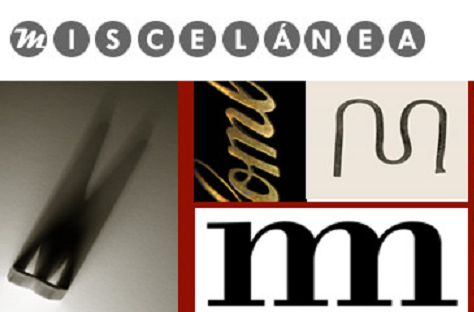Fashioning the Self from the Chasm: De Profundis and the Chronotope of Post-Prison Time
DOI:
https://doi.org/10.26754/ojs_misc/mj.200011225Palabras clave:
Oscar Wilde's De Profundis, Lacan, El falo, Bakhtin, El cronotopo, Greenblatt, Autofiguración, Homomórfico, Intercambio simbólicoResumen
Este artículo se centra en la carta de Wilde, De Profundis, en relación con diversas formas de deuda (económica y moral-metafórica, que, se argumenta, funcionan dentro de una economía de intercambio simbólico y deseo. El concepto bajtiniano de cronotopo se fusiona con la semiótica, el psicoanálisis lacaniano y la noción de autofiguración de Greenblatt para explorar cómo Wilde negocia el tiempo y el espacio como medio para narrar el yo y el otro. Frente a las afirmaciones de que De Profundis es una confesión, aquí se sugiere que puede verse como un tratado pedagógico en forma epistolar: uno que construye al destinatario de la carta como un «otro» negativo para preservar la integridad de la propia escritura.
Descargas
Citas
ALTHUSSER, Louis and Etienne BALIBAR. 1971. Lire le capital. Paris: Petite Collection Maspero.
BAKHTIN, M. M. 1981. The Dialogic Imagination. Ed. Michael Holquist; Trans. Caryl Emerson and Michael Holquist. Austin: University of Texas Press.
BARTHES, Roland. 1975. S/Z. Trans. Richard Miller. London: Jonathan Cape.
BAUDRILLARD, Jean. 1993. Symbolic Exchange and Death. Trans. Iain Hamilton. London: Sage.
BOONE, Joseph A. and Michael CADDEN (eds.). 1990. Engendering Men: The Questions of Male Feminist Criticism. London: Routledge.
COHEN, Ed. 1993. Talk on the Wilde Side: Toward a Genealogy of a Discourse on Male Sexualities. London: Routledge.
DERRIDA, Jacques. 1982. Margins of Philosophy. Trans. Alan Bass. Chicago: University of Chicago Press.
DOLLIM0RE, Jonathan. 1991. Sexual Dissidence: Augustine to Wilde, Freud to Foucault. Oxford: Clarenden Press.
EDELMAN, Lee. 1994. Homographesis: essays in gay literary and cultural theory. London: Routledge.
BLLMANN, Richard. 1988. Oscar Wilde. London: Penguin.
FOUCAULT, Michel. 1977. Discipline and Punish: The Birth of the Prison. Trans. Alan Sheridan. New York: Vintage Books.
FREUD, Sigmund. 1961. Beyond the Pleasure Principle. Ttrans. James Strachey. London: Hogarth and the Institute of Psycho-analysis.
GENETTE, Gerard. 1980. Narrative Discourse: An Essay in Meted. Trans. Jane E. Lewin. New York: Cornell University Press.
GORDON, Jan B. 1970. "Wilde and Newman: The Confessional Mode". Renaissance 22: 183-191.
GREENBLATT, Stephen. 1980. Renaissance Self-Fashioning: From More to Shakespeare. Chicago: University of Chicago Press.
HART-DAVIS. 1962. The Letters of Oscar Wilde. London: Hart-Davis.
HYDE, H. Montgomery. 1976. Oscar Wilde. London: Methuen.
KAIL, Harvey. 1979. "The Other Half of the Garden: Oscar Wilde's De Profundis and the Confessional Tradition". Prose Studies 2: 141-150.
LACAN, Jacques. 1977. Ecrits: A Selection. Trans. Alan Sheridan. London: Tavistock.
LACAN, Jacques. 1979. The Four Fundamental Concepts of Psycho-Analysis Trans. Alan Sheridan. London: Penguin.
RoITINGER, Anita. 1980. Oscar Wilde's Life as Reflected in his Correspondence and his Autobiography. Salzburg: Institut fiir Anglistik und Amerikanistik.
SEDGWICK, Eve Kosofsky. 1991. Epistemology of the Closet. Hermel Hemstead: Harvester Wheatsheaf.
SHEWAN, Rodney. 1977. Art and Egotism. London: Macmillan.
SILVERMAN, Kaja. 1983. The Subject of Semiotics. Oxford: Oxford University Press.
SINFIELD, Alan. 1994. The Wilde Century: Effeminacy, Oscar Wilde and the Queer Moment. New York: Columbia University Press.
WILDE, Oscar. (1966) 1978. Complete Works of Oscar Wilde. Introd. V. Holland. London: Book Club Associates.
Descargas
Publicado
Cómo citar
Número
Sección
Licencia

Esta obra está bajo una licencia internacional Creative Commons Atribución-NoComercial 4.0.


